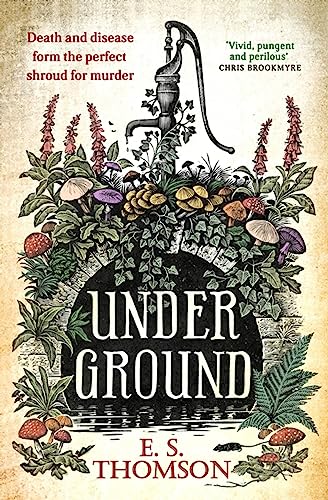Under Ground
‘All around us there was vice and debauchery, misery and sorrow,’ opines our hero Jem Flockhart, describing London in 1854. Thomson convincingly conveys the literal and metaphoric darkness of the period. We journey with surgeon-apothecary Flockhart and his assistant Will Quartermain through fog-filled streets, rat-infested sewers, and disease-ridden slums as they endeavour to save an innocent man from the gallows. We meet a cast of remarkably unpleasant – even grotesque – people. Thomson has a knack for creating atmosphere and memorable characters. But I did hanker for some light and shade, to ease my way through the darkness.
The title encapsulates the central concern of the novel: things that remain hidden. Flockhart’s gender, for example. Born female, her father dressed Jem as a man from birth. Cholera is the invisible disease that stalks the city. The lower classes in the slums of Prior’s Rent are unseen by their upper-class landlords in Blackwater Hall. And there isn’t enough space here to unravel the host of secrets that the hideously gothic Mortmain family keep.
It’s an ambitious novel that tackles a plethora of issues with contemporary resonance: gender identity, sexuality, water pollution, epidemics, and avaricious landlords. It’s well-researched, thought-provoking, and carefully handled. But the ideas obscure the story. After a fast-paced start, Jem and Will are deflected from their mission of saving a condemned man. The jeopardy, so well established in the opening chapters, becomes secondary to the sewer sub-plot and the investigation into the Mortmain family. The plotting is not strong enough to bind the multi-faceted elements into a satisfying whole. I admired Under Ground more than I enjoyed it. But if you like pitch black, rip-roaring adventures set in Victorian London, it may well appeal to you.










